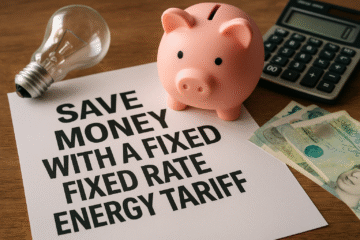Understanding your energy needs is the first step in finding the right energy provider for your home or business. It's important to take into account the size of your property, the number of occupants, and the appliances and devices you use on a daily basis. By assessing your energy consumption, you can get a clearer picture of the type of energy plan that will best suit your needs. For example, if you have a large family and use a lot of energy-intensive appliances, you may benefit from a plan with a higher usage allowance. On the other hand, if you live alone and are conscious of your energy usage, a plan with a lower usage allowance may be more suitable. By understanding your energy needs, you can make an informed decision when it comes to choosing an energy provider.
Furthermore, it's important to consider the environmental impact of your energy consumption. If you're concerned about reducing your carbon footprint, you may want to look for an energy provider that offers renewable energy options. By understanding your energy needs and environmental priorities, you can make a conscious decision that aligns with your values and goals.
Researching Local Energy Providers
Once you have a clear understanding of your energy needs, the next step is to research local energy providers. There are a variety of energy companies in the market, each offering different plans and rates. It's important to take the time to research and compare the options available to you. Start by looking at the websites of different energy providers to see what plans they offer and what their rates are. You can also read customer reviews and testimonials to get an idea of the level of service and satisfaction provided by each company. Additionally, consider reaching out to friends, family, and neighbours to get recommendations based on their experiences with different energy providers.
When researching local energy providers, it's also important to consider their reputation and track record. Look for companies that have a strong commitment to customer service and sustainability. By doing thorough research, you can make an informed decision when it comes to choosing an energy provider that meets your needs and aligns with your values.
Comparing Tariffs and Rates
Once you have a list of potential energy providers, it's time to compare tariffs and rates. Different providers offer different pricing structures, so it's important to carefully compare the options available to you. Look at the unit rates for electricity and gas, as well as any standing charges or additional fees. Consider whether the provider offers fixed or variable rates, and what the terms and conditions of their plans are. By comparing tariffs and rates, you can get a clear picture of the cost of energy with each provider and make an informed decision based on your budget and energy needs.
It's also important to consider any additional incentives or perks offered by different energy providers. Some companies may offer rewards programs, discounts on other services, or special promotions for new customers. By comparing tariffs and rates, as well as any additional incentives, you can find the best value for money when it comes to choosing an energy provider.
Utilising Government Schemes and Grants
In addition to researching local energy providers, it's worth exploring government schemes and grants that can help you save money on your energy bills. Many governments offer financial incentives for homeowners and businesses to invest in energy-efficient technologies and renewable energy options. These incentives can include grants, rebates, tax credits, and low-interest loans. By taking advantage of these schemes, you can reduce the upfront costs of installing energy-efficient appliances or renewable energy systems, making it more affordable to lower your energy consumption and environmental impact.
To find out what government schemes and grants are available in your area, visit the website of your local government or energy regulatory body. You can also speak to a qualified energy advisor who can provide information on available incentives and help you navigate the application process. By utilising government schemes and grants, you can make sustainable choices for your home or business while saving money on your energy bills.
Negotiating with Energy Providers
When it comes to choosing an energy provider, don't be afraid to negotiate for the best deal. Many providers are willing to offer discounts or special rates to attract new customers or retain existing ones. If you've done your research and have a clear understanding of your energy needs, you can use this information as leverage when negotiating with potential providers. For example, if you've found a better rate with a competitor, you can use this as a bargaining chip to negotiate a better deal with your current provider.
It's also worth considering other factors that may be negotiable, such as contract terms, payment options, or additional services. By being proactive and assertive in your negotiations, you can secure a better deal that meets your needs and budget. Don't be afraid to ask for what you want – the worst that can happen is that the provider says no, but in many cases, they may be willing to accommodate your requests in order to win your business.
Joining Local Energy Co-operatives
Another option to consider when looking for an energy provider is joining a local energy co-operative. Energy co-operatives are community-owned organisations that provide renewable energy options to their members. By joining a co-operative, you can have a direct say in how the organisation is run and benefit from shared ownership of renewable energy projects. Co-operatives often offer competitive rates and may provide additional benefits such as community engagement events or educational resources on sustainable living.
Joining a local energy co-operative can also provide peace of mind knowing that your energy is being sourced from sustainable and ethical sources. By supporting local renewable energy projects, you can contribute to the transition towards a more sustainable and environmentally friendly energy system. If there are no existing co-operatives in your area, consider starting one with like-minded individuals who share your vision for a cleaner and greener future.
Embracing Renewable Energy Options
Finally, when choosing an energy provider, consider embracing renewable energy options. Renewable energy sources such as solar, wind, hydroelectric, and geothermal power offer sustainable alternatives to traditional fossil fuels. Many energy providers now offer renewable energy plans that allow customers to support clean energy generation without having to install their own renewable energy systems.
By opting for a renewable energy plan, you can reduce your carbon footprint and support the growth of clean energy technologies. Additionally, many renewable energy plans offer competitive rates and long-term price stability, making them an attractive option for environmentally conscious consumers. If you have the means and space, you may also want to consider installing your own renewable energy system such as solar panels or a small wind turbine. This can further reduce your reliance on traditional grid electricity and provide long-term savings on your energy bills.
In conclusion, finding the right energy provider involves understanding your energy needs, researching local providers, comparing tariffs and rates, utilising government schemes and grants, negotiating with providers, joining local co-operatives, and embracing renewable energy options. By taking these steps and making informed decisions based on your values and goals, you can find an energy provider that meets your needs while contributing to a more sustainable future for our planet.





